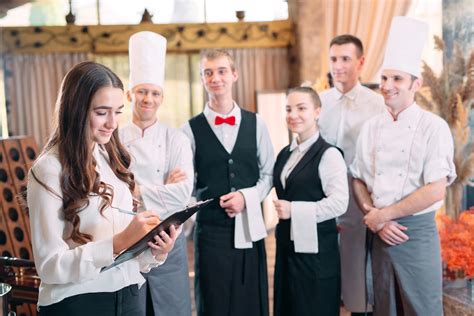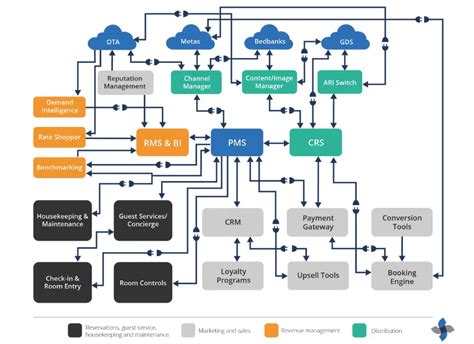In today's digital age, the hospitality industry has undergone a significant transformation. With the rise of online booking platforms, mobile apps, and social media, hotels must now provide a seamless and personalized experience for their guests. To achieve this, hotels need to invest in a robust tech stack that streamlines operations, enhances guest satisfaction, and drives revenue growth. In this article, we will explore the 8 essential tools that every modern hotel should consider including in their tech stack.
The Importance of a Modern Hotel Tech Stack
A well-designed tech stack can make all the difference in the hospitality industry. By leveraging the right tools and technologies, hotels can:
- Improve operational efficiency and reduce costs
- Enhance guest satisfaction and loyalty
- Increase revenue through targeted marketing and upselling
- Stay ahead of the competition in a rapidly evolving market
1. Property Management System (PMS)
A Property Management System (PMS) is the backbone of any hotel's tech stack. A PMS is a software application that manages all aspects of hotel operations, including front desk, housekeeping, and revenue management.

2. Guest Relationship Management (GRM) System
A Guest Relationship Management (GRM) system is a powerful tool that helps hotels build strong relationships with their guests. A GRM system allows hotels to manage guest interactions, preferences, and loyalty programs, enabling personalized marketing and exceptional customer service.

3. Revenue Management System (RMS)
A Revenue Management System (RMS) is a critical tool for hotels looking to optimize their pricing and revenue strategies. An RMS analyzes market data, occupancy rates, and pricing trends to recommend optimal room rates and inventory management.

4. Online Booking Engine (OBE)
An Online Booking Engine (OBE) is a website application that enables guests to book rooms and packages directly with the hotel. A modern OBE should be mobile-friendly, secure, and integrated with the hotel's PMS.

5. Mobile App
A mobile app is a great way for hotels to engage with their guests and provide a seamless experience. A hotel mobile app can offer features such as mobile check-in, room service ordering, and loyalty program management.

6. Customer Relationship Management (CRM) System
A Customer Relationship Management (CRM) system is a powerful tool that helps hotels manage guest interactions and preferences. A CRM system can be integrated with the hotel's PMS, GRM, and RMS to provide a 360-degree view of the guest.

7. Social Media Management Tool
A social media management tool is essential for hotels to manage their online reputation and engage with their guests. A social media management tool can help hotels schedule posts, respond to guest reviews, and analyze social media metrics.

8. Business Intelligence (BI) Tool
A Business Intelligence (BI) tool is a powerful analytics platform that helps hotels make data-driven decisions. A BI tool can analyze data from various sources, including the PMS, RMS, and CRM, to provide insights on revenue, occupancy, and guest satisfaction.

Gallery of Essential Tools for a Modern Hotel Tech Stack






FAQs
What is a hotel tech stack?
+A hotel tech stack is a collection of software applications and technologies used to manage hotel operations, enhance guest experience, and drive revenue growth.
Why is a modern hotel tech stack essential?
+A modern hotel tech stack is essential to stay competitive in the hospitality industry, improve operational efficiency, enhance guest satisfaction, and drive revenue growth.
What are the key components of a hotel tech stack?
+The key components of a hotel tech stack include a Property Management System (PMS), Guest Relationship Management (GRM) system, Revenue Management System (RMS), Online Booking Engine (OBE), mobile app, Customer Relationship Management (CRM) system, social media management tool, and Business Intelligence (BI) tool.
In conclusion, a modern hotel tech stack is essential for hotels to stay competitive, improve operational efficiency, enhance guest satisfaction, and drive revenue growth. By investing in the right tools and technologies, hotels can provide a seamless and personalized experience for their guests, while also making data-driven decisions to drive business success.
